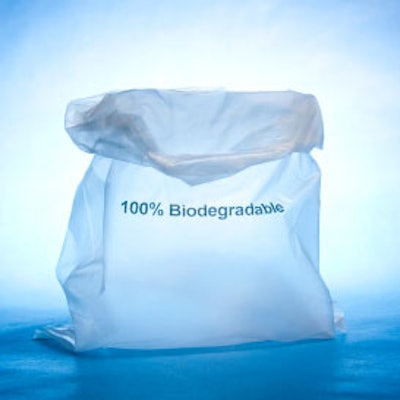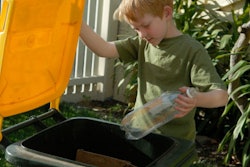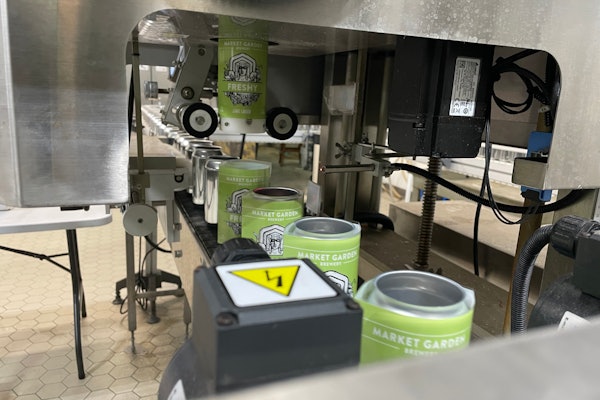
Research from North Carolina State University indicates that so-called biodegradable products are likely doing more harm than good in landfills, because they are releasing a powerful greenhouse gas as they break down. The report, “Is Biodegradability a Desirable Attribute for Discarded Solid Waste? Perspectives from a National Landfill Greenhouse Gas Inventory Model,” supports one recently published by the Sustainable Packaging Coalition that concluded that biodegradation in modern landfills is not to be encouraged, as on net, the harmful GHG impacts of landfill emissions are likely to outweigh the benefits of energy recovery.
“Biodegradable materials, such as disposable cups and utensils, are broken down in landfills by microorganisms that then produce methane,” says Dr. Morton Barlaz, professor and head of NC State’s Department of Civil, Construction, and Environmental Engineering, who co-authored the report. “Methane can be a valuable energy source when captured, but is a potent greenhouse gas when released into the atmosphere.”
The U.S. Environmental Protection Agency (EPA) estimates that only about 35% of municipal solid waste goes to landfills that capture methane for energy use. EPA estimates that another 34% of landfills capture methane and burn it off on-site, while 31% allow the methane to escape.
“In other words,” Barlaz says, “biodegradable products are not necessarily more environmentally friendly when disposed in landfills.”
This problem may be exacerbated by the rate at which these man-made biodegradable materials break down. Federal Trade Commission (FTC) guidelines call for products marked as “biodegradable” to decompose within “a reasonably short period of time” after disposal. But such rapid degradation may actually be environmentally harmful, the study shows, because federal regulations do not require landfills that collect methane to install gas collection systems for at least two years after the waste is buried. If materials break down and release methane quickly, much of that methane will likely be emitted before the collection technology is installed. This means less potential fuel for energy use, and more greenhouse gas emissions.
As a result, the researchers find that a slower rate of biodegradation is actually more environmentally friendly, because the bulk of the methane production will occur after the methane collection system is in place.
Some specific biodegradable products such as bags that hold yard waste that are always sent to composting or anaerobic digestion facilities were not included in the study.
“If we want to maximize the environmental benefit of biodegradable products in landfills,” Barlaz says, “we need to both expand methane collection at landfills and design these products to degrade more slowly—in contrast to FTC guidance.”
Along with Barlaz, NC State Ph.D. student James Levis co-authored the report, which was supported by Procter & Gamble and the Environmental Research and Education Foundation. The research was published online in late May by the journal Environmental Science & Technology.


























